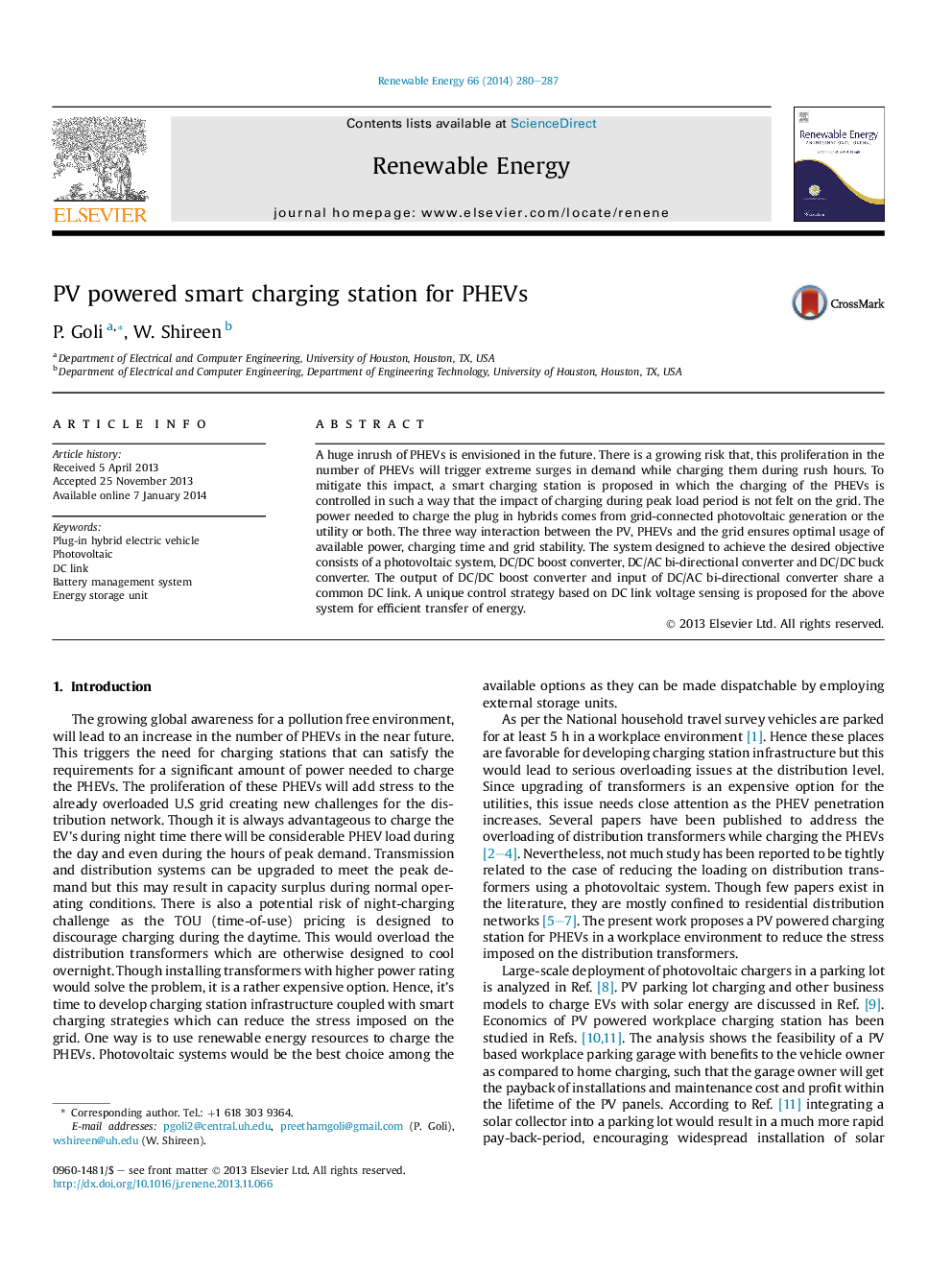| Article ID | Journal | Published Year | Pages | File Type |
|---|---|---|---|---|
| 6768502 | Renewable Energy | 2014 | 8 Pages |
Abstract
A huge inrush of PHEVs is envisioned in the future. There is a growing risk that, this proliferation in the number of PHEVs will trigger extreme surges in demand while charging them during rush hours. To mitigate this impact, a smart charging station is proposed in which the charging of the PHEVs is controlled in such a way that the impact of charging during peak load period is not felt on the grid. The power needed to charge the plug in hybrids comes from grid-connected photovoltaic generation or the utility or both. The three way interaction between the PV, PHEVs and the grid ensures optimal usage of available power, charging time and grid stability. The system designed to achieve the desired objective consists of a photovoltaic system, DC/DC boost converter, DC/AC bi-directional converter and DC/DC buck converter. The output of DC/DC boost converter and input of DC/AC bi-directional converter share a common DC link. A unique control strategy based on DC link voltage sensing is proposed for the above system for efficient transfer of energy.
Keywords
Related Topics
Physical Sciences and Engineering
Energy
Renewable Energy, Sustainability and the Environment
Authors
P. Goli, W. Shireen,
